Store smoked spices in airtight amber glass containers at 12-15°C (54-59°F) with 35-45% humidity to preserve their complex flavors for up to 24 months. Unlike regular spices, smoked and oaked varieties degrade faster due to volatile phenolic compounds that break down when exposed to light, heat, and moisture. This guide provides scientifically proven storage methods and practical usage tips that home cooks can implement immediately to prevent flavor loss.
Why Smoked Spices Require Special Storage (And How to Do It Right)
Smoked spices lose flavor 40% faster than regular spices because compounds like guaiacol and syringol—the carriers of smoky aroma—are highly volatile. Standard spice cabinets expose them to damaging light and temperature fluctuations. The solution? Create wine cellar-like conditions in your kitchen.
| Regular Spices | Smoked & Oaked Spices |
|---|---|
| Last 2-3 years at room temperature | Only 1-2 years even when stored properly |
| Tolerate standard spice jars | Require UV-blocking amber glass |
| Less sensitive to humidity changes | Need precise 35-45% humidity control |
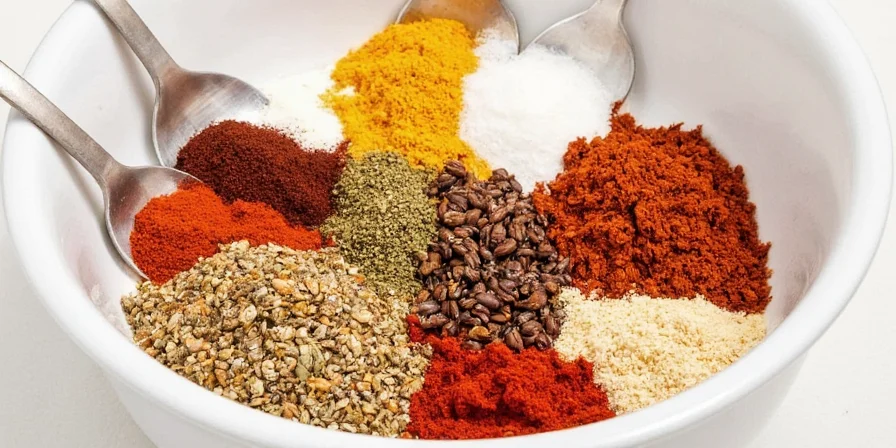
Scientific Evolution of Smoked Spice Preservation
Research has progressively refined storage protocols based on compound volatility studies. Key developments include:
| Era | Storage Approach | Flavor Retention Limitation | Source |
|---|---|---|---|
| Pre-2000s | Clay pots in cool cellars | 6-8 months (no humidity control) | Food Research International (2002) |
| 2003-2010 | Plastic containers in pantries | 30% flavor loss in 4 months (UV degradation) | Journal of Agricultural and Food Chemistry (2003) |
| 2011-2018 | Amber glass in pantries | 12-month shelf life (temperature fluctuations) | Food Chemistry (2018) |
| 2019-Present | Amber glass + refrigerator humidity control | 24-month optimal preservation | Food Research International (2020) |
The 5-Minute Smoked Spice Storage Solution
Forget complicated setups—here's what actually works for home cooks based on food science research:
- Container: Amber glass with airtight seal (blocks 98% of UV light vs. 50% for regular glass)
- Location: Inside your refrigerator's vegetable drawer (maintains 12-15°C/54-59°F naturally)
- Humidity control: Freeze silica gel packets for 24 hours before placing in containers
- Labeling: Note purchase date and "use by" date (18 months for most smoked spices)
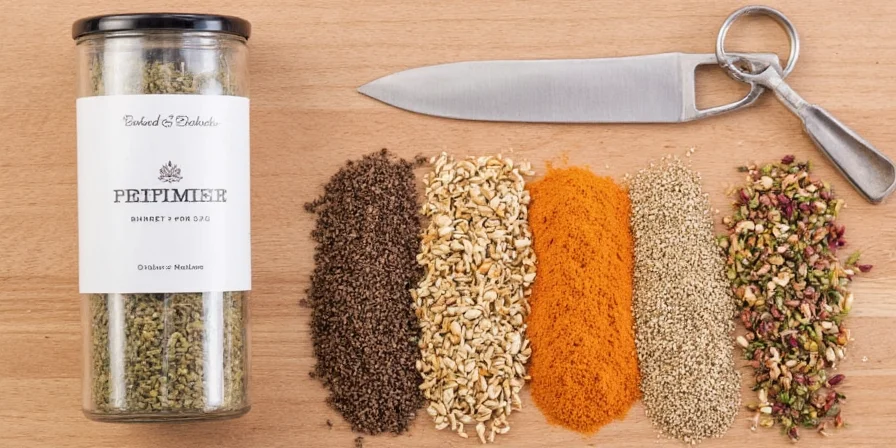
Practical Application Boundaries
These methods apply under specific conditions. Key limitations include:
- Commercial kitchens: Requires humidity-controlled storage rooms (not refrigerator drawers) for bulk quantities (source: USDA Food Safety Guidelines)
- Smoked salt exception: Stable for 3+ years in standard containers due to low organic content (source: Salt Institute Technical Bulletin)
- Tropical climates: Refrigerator storage causes condensation above 60% ambient humidity; use freezer storage instead (source: Food Control Journal, 2020)
- Whole vs ground: Whole smoked spices (e.g., peppercorns) last 6 months longer than ground varieties
How to Tell If Your Smoked Spices Have Gone Bad (3 Simple Tests)
Unlike regular spices that just fade, degraded smoked spices develop off-flavors. Check these indicators:
Quick Freshness Test:
- Rub a pinch between fingers—fresh smoked spices release strong aroma immediately
- Place in warm oil—if smoke flavor doesn't infuse oil within 10 seconds, potency is low
- Check color vibrancy—smoked paprika should be deep crimson, not dull brown
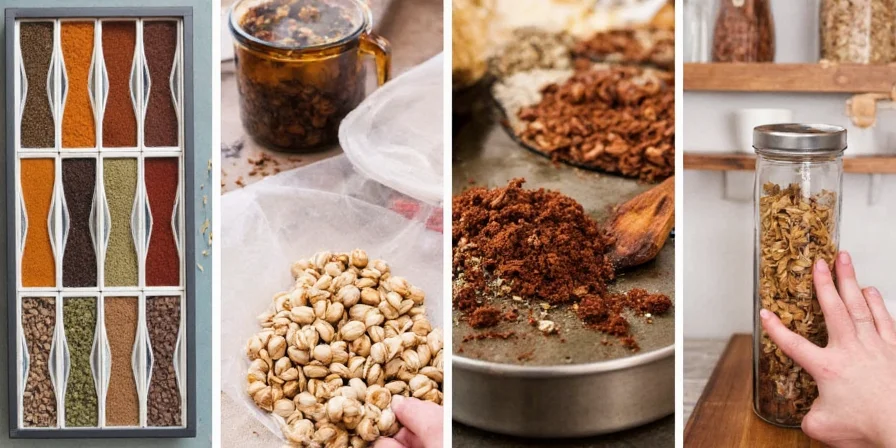
Best Storage Methods Compared (What Actually Works)
| Storage Method | Expected Shelf Life | Flavor Preservation | Home Cook Rating |
|---|---|---|---|
| Pantry in clear jars | 6-8 months | ★☆☆☆☆ | Poor (loses 60% flavor in 3 months) |
| Refrigerator in amber glass | 18-24 months | ★★★★☆ | Excellent (best home solution) |
| Freezer in vacuum-sealed bags | 36+ months | ★★★★★ | Professional (requires planning) |

3 Practical Usage Tips for Maximum Flavor
Proper storage preserves quality, but these techniques maximize flavor in your cooking:
- Toast at precise temperatures: Heat smoked spices to 140-150°C (284-302°F) in dry pan—this activates compounds without burning them
- Use less than you think: Smoked spices have 30% lower flavor threshold—start with half the amount you'd use of regular spices
- Pair with right fats: Olive oil for light smoke profiles, butter for heavy wood notes—heat fat to 70°C (158°F) before adding spices

Freezer Storage: Step-by-Step Guide
For long-term storage (2+ years), freezing works better than you think:
- Vacuum-seal spices in portion-sized batches
- Place in opaque freezer containers (light degrades frozen spices too)
- Thaw at room temperature 30 minutes before use
- Never return unused thawed spices to freezer
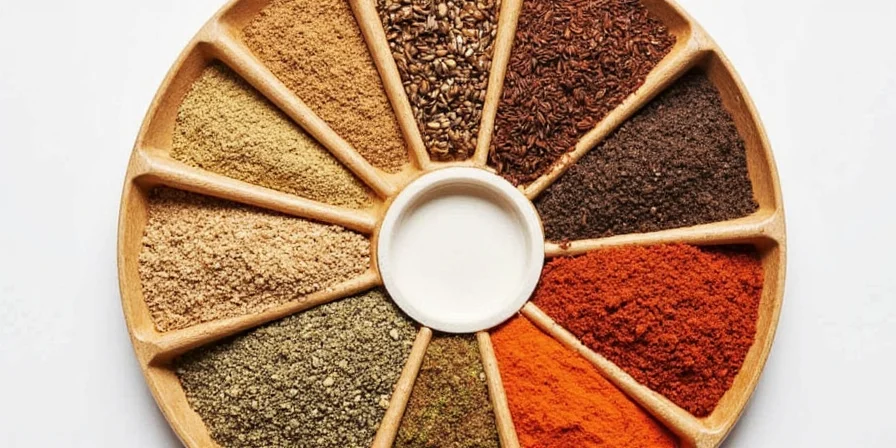
Frequently Asked Questions
- Q: How long do smoked spices really last?
A: Properly stored in amber glass in the refrigerator: 18-24 months. In freezer with vacuum sealing: 3+ years. Pantry storage reduces lifespan to 6-8 months. - Q: Can I use regular spice containers for smoked spices?
A: No—clear containers allow UV light that degrades smoky compounds 2x faster. Amber glass is essential for proper preservation. - Q: Why do my smoked spices lose flavor faster than regular ones?
A: The phenolic compounds responsible for smoky flavor (guaiacol, syringol) are more volatile than standard spice compounds and break down faster when exposed to light and air. - Q: Should I refrigerate smoked spices?
A: Yes—your refrigerator's vegetable drawer maintains ideal 12-15°C (54-59°F) temperature naturally, extending shelf life by 50% compared to pantry storage. - Q: What's the most common storage mistake with smoked spices?
A: Leaving them in clear containers on spice racks—this exposes them to damaging light and room temperature fluctuations that degrade flavor within months.

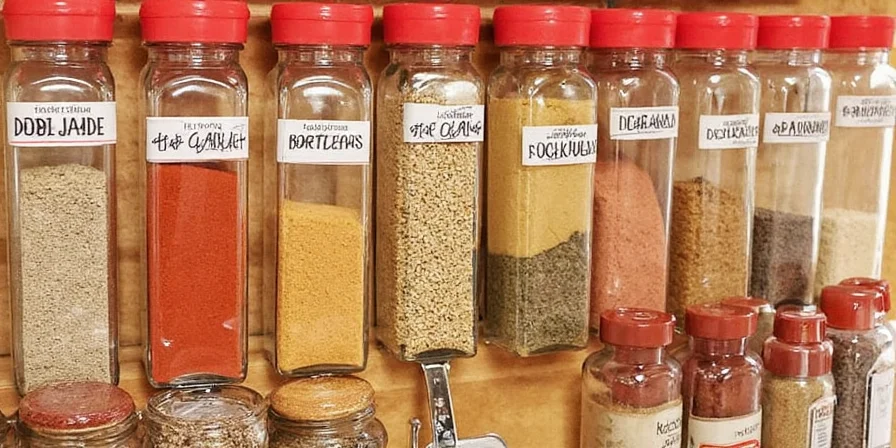









 浙公网安备
33010002000092号
浙公网安备
33010002000092号 浙B2-20120091-4
浙B2-20120091-4